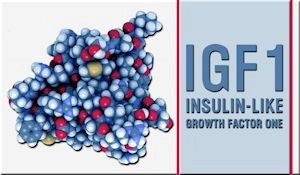Introduction
Cancer remains a leading cause of morbidity and mortality among American males, with various factors contributing to its development and progression. Among these, the role of endocrinology—the study of hormones and their actions—has garnered significant attention due to its profound impact on cancer risk and outcomes. This article explores the intricate relationship between hormonal imbalances and the increased risk of various types of cancer in American men, emphasizing the need for awareness and proactive health management.
The Role of Hormones in Cancer Development
Hormones are crucial regulators of numerous physiological processes, including growth, metabolism, and reproduction. However, when these hormones are imbalanced, they can contribute to the development of certain cancers. For instance, testosterone, a primary male sex hormone, has been linked to the risk of prostate cancer. Elevated levels of testosterone can stimulate the growth of prostate cells, potentially leading to cancerous transformations. Similarly, insulin and insulin-like growth factors, which are influenced by lifestyle factors such as diet and exercise, have been associated with an increased risk of colorectal and pancreatic cancers.
Prostate Cancer and Hormonal Influence
Prostate cancer is one of the most common cancers affecting American males, and its progression is heavily influenced by androgens such as testosterone. The androgen receptor pathway plays a critical role in the development and progression of prostate cancer. Men with higher levels of circulating testosterone may have an increased risk of developing aggressive forms of prostate cancer. This has led to the development of androgen deprivation therapy (ADT) as a standard treatment for advanced prostate cancer, highlighting the direct link between hormonal regulation and cancer management.
Testicular Cancer and Hormonal Factors
Testicular cancer, although less common than prostate cancer, is the most common cancer in young American males. The etiology of testicular cancer is not fully understood, but hormonal imbalances, particularly those involving gonadotropins and sex steroids, have been implicated. Studies have shown that men with higher levels of luteinizing hormone (LH) and follicle-stimulating hormone (FSH) may have an elevated risk of developing testicular cancer. These findings underscore the importance of monitoring hormonal levels in young males to potentially mitigate cancer risk.
Hormonal Impact on Colorectal and Pancreatic Cancers
Colorectal and pancreatic cancers are also influenced by hormonal factors, particularly those related to insulin and insulin-like growth factors. High levels of insulin, often resulting from obesity and poor dietary habits, can promote the proliferation of cancer cells in the colon and pancreas. American males, who are increasingly affected by obesity, are at a higher risk of developing these cancers due to the resultant insulin resistance and hyperinsulinemia. Addressing these hormonal imbalances through lifestyle modifications and medical interventions can significantly reduce the risk of these cancers.
Strategies for Mitigating Hormonal Cancer Risk
To mitigate the risk of hormonally influenced cancers, American males should adopt a multifaceted approach that includes regular screening, lifestyle modifications, and, when necessary, hormonal therapy. Regular screenings, such as prostate-specific antigen (PSA) tests for prostate cancer and colonoscopies for colorectal cancer, are essential for early detection and intervention. Lifestyle modifications, including maintaining a healthy weight, engaging in regular physical activity, and consuming a balanced diet, can help regulate hormonal levels and reduce cancer risk. In cases where hormonal imbalances are severe, medical interventions such as ADT for prostate cancer or insulin-sensitizing agents for colorectal cancer may be warranted.
Conclusion
The relationship between endocrinology and cancer risk in American males is complex and multifaceted, with hormonal imbalances playing a significant role in the development and progression of various cancers. By understanding these hormonal influences and adopting proactive health management strategies, American males can significantly reduce their risk of developing these life-threatening diseases. Continued research and awareness are crucial to further elucidate these connections and improve cancer prevention and treatment outcomes.
Contact Us For A Fast And Professional Response

- Endocrinology and Sleep Disorders: Impact and Management in American Men [Last Updated On: February 20th, 2025] [Originally Added On: February 20th, 2025]
- Vitamin D's Crucial Role in Endocrine Health for American Males [Last Updated On: March 17th, 2025] [Originally Added On: March 17th, 2025]
- Lifestyle Impact on Endocrine Health in American Men: Diet, Exercise, Sleep, Stress [Last Updated On: March 18th, 2025] [Originally Added On: March 18th, 2025]
- Endocrine Health and Cancer Risk in American Men: A Comprehensive Analysis [Last Updated On: March 19th, 2025] [Originally Added On: March 19th, 2025]
- Managing PCOS in Transgender American Men: Endocrinological and Tailored Care Approaches [Last Updated On: March 19th, 2025] [Originally Added On: March 19th, 2025]
- Autoimmune Endocrine Disorders in American Males: Diagnosis, Treatment, and Management [Last Updated On: March 19th, 2025] [Originally Added On: March 19th, 2025]
- Hormonal Changes in Aging Men: Impacts and Management Strategies [Last Updated On: March 19th, 2025] [Originally Added On: March 19th, 2025]
- Hormonal Optimization for American Male Athletes: Enhancing Performance Naturally [Last Updated On: March 20th, 2025] [Originally Added On: March 20th, 2025]
- Endocrine Disruptors: Impact on American Male Health and Mitigation Strategies [Last Updated On: March 20th, 2025] [Originally Added On: March 20th, 2025]
- Endocrinology's Role in Weight Management for American Males: Hormones and Strategies [Last Updated On: March 21st, 2025] [Originally Added On: March 21st, 2025]
- Managing Type 2 Diabetes in American Men: An Endocrinological Approach [Last Updated On: March 21st, 2025] [Originally Added On: March 21st, 2025]
- Male Sexual Health and Endocrinology: Hormones, Disorders, and Treatment Insights [Last Updated On: March 22nd, 2025] [Originally Added On: March 22nd, 2025]
- Chronic Fatigue in American Males: Endocrinology's Role in Diagnosis and Management [Last Updated On: March 22nd, 2025] [Originally Added On: March 22nd, 2025]
- Dietary Impact on Endocrine Health in American Men: Hormones and Nutrition Strategies [Last Updated On: March 22nd, 2025] [Originally Added On: March 22nd, 2025]
- Smoking's Impact on Male Endocrine Health: Testosterone, Thyroid, and More [Last Updated On: March 23rd, 2025] [Originally Added On: March 23rd, 2025]
- Male Depression and Endocrinology: Hormonal Insights and Management Strategies [Last Updated On: March 23rd, 2025] [Originally Added On: March 23rd, 2025]
- Endocrine Health and Mental Well-being in American Males: Hormonal Balance and Lifestyle Impact [Last Updated On: March 23rd, 2025] [Originally Added On: March 23rd, 2025]
- Hormones and Joint Health in American Men: Impacts, Interventions, and Prevention [Last Updated On: March 23rd, 2025] [Originally Added On: March 23rd, 2025]
- Hormonal Influences on Dental Health in American Men: Strategies for Optimal Oral Care [Last Updated On: March 24th, 2025] [Originally Added On: March 24th, 2025]
- Managing Endocrine Disorders in American Men with Neurological Conditions: A Tailored Approach [Last Updated On: March 24th, 2025] [Originally Added On: March 24th, 2025]
- Alcohol's Impact on Endocrine Health in American Males: A Comprehensive Overview [Last Updated On: March 24th, 2025] [Originally Added On: March 24th, 2025]
- Endocrinology's Role in Male Infertility: Diagnosis, Treatment, and Lifestyle Impact [Last Updated On: March 24th, 2025] [Originally Added On: March 24th, 2025]
- Endocrine Health and Liver Function: Impacts on American Male Health [Last Updated On: March 24th, 2025] [Originally Added On: March 24th, 2025]
- Hormonal Influences on Immune Health in American Men: Testosterone, Cortisol, and More [Last Updated On: March 24th, 2025] [Originally Added On: March 24th, 2025]
- Hormones and Skin Health: A Guide for American Men [Last Updated On: March 24th, 2025] [Originally Added On: March 24th, 2025]
- Endocrinology's Impact on Muscle Health in American Males: Hormones and Optimization Strategies [Last Updated On: March 24th, 2025] [Originally Added On: March 24th, 2025]
- Endocrine System's Role in Digestive Health of American Males: Hormones and Disorders [Last Updated On: March 25th, 2025] [Originally Added On: March 25th, 2025]
- Endocrine Health and Hearing Loss in American Males: Insights and Prevention [Last Updated On: March 25th, 2025] [Originally Added On: March 25th, 2025]
- Sleep's Impact on Endocrine Health in American Males: Hormones and Well-being [Last Updated On: March 25th, 2025] [Originally Added On: March 25th, 2025]
- Endocrine Disorders and Heart Disease: Management Strategies for American Men [Last Updated On: March 25th, 2025] [Originally Added On: March 25th, 2025]
- Nutrition's Impact on Endocrine Health in American Males: Dietary Choices and Hormone Balance [Last Updated On: March 25th, 2025] [Originally Added On: March 25th, 2025]
- Gout in American Males: Endocrinological Insights and Management Strategies [Last Updated On: March 26th, 2025] [Originally Added On: March 26th, 2025]
- Exercise Benefits on Endocrine Health in American Males: Hormonal Impacts Explored [Last Updated On: March 26th, 2025] [Originally Added On: March 26th, 2025]
- Endocrinology's Impact on Kidney Health: A Guide for American Men [Last Updated On: March 26th, 2025] [Originally Added On: March 26th, 2025]
- Endocrinology's Role in Treating Male Eating Disorders in the USA [Last Updated On: March 26th, 2025] [Originally Added On: March 26th, 2025]
- Endocrine Disorders and Autoimmune Diseases in American Men: Management and Impact [Last Updated On: March 26th, 2025] [Originally Added On: March 26th, 2025]
- Endocrine Health's Role in Prostate Cancer Among American Men: A Comprehensive Overview [Last Updated On: March 26th, 2025] [Originally Added On: March 26th, 2025]
- Chronic Stress Impact on Endocrine Health in American Males: Hormonal Pathways and Management [Last Updated On: March 26th, 2025] [Originally Added On: March 26th, 2025]
- Endocrine Health and Vision: Critical Insights for American Males [Last Updated On: March 26th, 2025] [Originally Added On: March 26th, 2025]
- Hormonal Imbalances and Foot Health in American Men: Impacts and Management Strategies [Last Updated On: March 27th, 2025] [Originally Added On: March 27th, 2025]
- Endocrinology's Role in Managing Male Insomnia in the USA [Last Updated On: March 27th, 2025] [Originally Added On: March 27th, 2025]
- Endocrine-Gastrointestinal Interplay: Management Strategies for American Men [Last Updated On: March 27th, 2025] [Originally Added On: March 27th, 2025]
- Exploring Endocrinology's Role in Treating Male Anxiety in the USA [Last Updated On: March 28th, 2025] [Originally Added On: March 28th, 2025]
- Endocrine Disorders and Skin Health in American Men: Diagnosis, Treatment, and Management [Last Updated On: March 28th, 2025] [Originally Added On: March 28th, 2025]
- Endocrine Health's Impact on Respiratory Function in American Males [Last Updated On: March 28th, 2025] [Originally Added On: March 28th, 2025]
- Endocrine Health and Nail Conditions in American Males: A Diagnostic Insight [Last Updated On: March 28th, 2025] [Originally Added On: March 28th, 2025]
- Exploring Endocrinology's Role in Managing ADHD in American Males [Last Updated On: March 28th, 2025] [Originally Added On: March 28th, 2025]
- Caffeine's Impact on Endocrine Function in American Males: Risks and Recommendations [Last Updated On: March 28th, 2025] [Originally Added On: March 28th, 2025]
- Hormonal Hair Loss in American Men: Causes, Treatments, and Future Research [Last Updated On: March 29th, 2025] [Originally Added On: March 29th, 2025]
- Endocrine Disorders in Men: Impact on Eye Health and Management Strategies [Last Updated On: March 30th, 2025] [Originally Added On: March 30th, 2025]
- Endocrinology's Role in Enhancing Bipolar Disorder Treatment for American Men [Last Updated On: March 30th, 2025] [Originally Added On: March 30th, 2025]
- Endocrinology's Role in Treating PTSD Among American Males: Hormonal Insights and Interventions [Last Updated On: March 30th, 2025] [Originally Added On: March 30th, 2025]
- Endocrine Disorders and Hand Health in American Males: Impacts and Management Strategies [Last Updated On: April 1st, 2025] [Originally Added On: April 1st, 2025]
- Hormonal Influences on Nasal Health in American Men: A Comprehensive Overview [Last Updated On: April 2nd, 2025] [Originally Added On: April 2nd, 2025]
- Endocrine Disorders and Ear Health: Impacts and Management for American Men [Last Updated On: April 5th, 2025] [Originally Added On: April 5th, 2025]
- Hydration's Impact on Endocrine Health in American Males: A Comprehensive Guide [Last Updated On: April 5th, 2025] [Originally Added On: April 5th, 2025]
- Exploring Endocrinology's Role in Treating Schizophrenia in Male Patients [Last Updated On: April 6th, 2025] [Originally Added On: April 6th, 2025]
- Endocrine System's Impact on Throat Health in American Males: Hormonal Insights [Last Updated On: April 6th, 2025] [Originally Added On: April 6th, 2025]
- Dietary Supplements' Impact on Endocrine Health in American Males: A Comprehensive Analysis [Last Updated On: April 7th, 2025] [Originally Added On: April 7th, 2025]
- Managing Endocrine Disorders in American Men with Lung Conditions: A Multidisciplinary Approach [Last Updated On: April 8th, 2025] [Originally Added On: April 8th, 2025]
- Hormonal Influences on Heart Health in American Men: Testosterone, Thyroid, Insulin [Last Updated On: April 8th, 2025] [Originally Added On: April 8th, 2025]
- Mental Health's Impact on Endocrine Function in American Males: A Comprehensive Analysis [Last Updated On: April 8th, 2025] [Originally Added On: April 8th, 2025]
- Managing Endocrine Disorders in American Men with Kidney Disease: A Multidisciplinary Approach [Last Updated On: April 9th, 2025] [Originally Added On: April 9th, 2025]
- Endocrine Health's Impact on Blood Health in American Males: A Comprehensive Overview [Last Updated On: April 10th, 2025] [Originally Added On: April 10th, 2025]
- Exploring Endocrinology's Role in Treating Male Autism in the USA [Last Updated On: April 10th, 2025] [Originally Added On: April 10th, 2025]
- Hormonal Influences on Male Brain Health: Testosterone, Cortisol, and More [Last Updated On: April 10th, 2025] [Originally Added On: April 10th, 2025]
- Exploring Endocrinology's Role in Treating OCD Among American Males [Last Updated On: April 13th, 2025] [Originally Added On: April 13th, 2025]
- Endocrine-Nerve Health in American Males: Hormones, Disorders, and Holistic Care [Last Updated On: April 14th, 2025] [Originally Added On: April 14th, 2025]
- Aging Effects on Endocrine Function in American Males: Hormonal Changes and Management [Last Updated On: April 14th, 2025] [Originally Added On: April 14th, 2025]
- Lifestyle Choices Impacting Endocrine Health in American Males: Diet, Exercise, Sleep, Stress [Last Updated On: April 16th, 2025] [Originally Added On: April 16th, 2025]
- Exploring Hormonal Links in Male ADD: An Endocrinological Perspective [Last Updated On: April 16th, 2025] [Originally Added On: April 16th, 2025]
- Endocrine Disorders and Muscle Health in American Men: Challenges and Management Strategies [Last Updated On: April 16th, 2025] [Originally Added On: April 16th, 2025]
- Hormonal Fluctuations and Their Impact on Men's Skin Health in America [Last Updated On: April 17th, 2025] [Originally Added On: April 17th, 2025]
- Endocrine Health's Impact on Joint Function in American Males: A Comprehensive Guide [Last Updated On: April 18th, 2025] [Originally Added On: April 18th, 2025]
- Managing Endocrine Disorders in American Men with Heart Conditions: A Holistic Approach [Last Updated On: April 18th, 2025] [Originally Added On: April 18th, 2025]
- Endocrine System and Liver Function: Vital Health Link in American Males [Last Updated On: April 18th, 2025] [Originally Added On: April 18th, 2025]
- Bone Health in American Men: Hormonal Influences and Holistic Management Strategies [Last Updated On: April 19th, 2025] [Originally Added On: April 19th, 2025]
- Endocrinology's Vital Role in Treating Male Eating Disorders in the U.S. [Last Updated On: April 19th, 2025] [Originally Added On: April 19th, 2025]
- Endocrinology's Role in Managing Diabetes Among American Males: A Comprehensive Approach [Last Updated On: April 21st, 2025] [Originally Added On: April 21st, 2025]
- Endocrinology's Impact on American Male Health: Hormones and Wellness [Last Updated On: April 22nd, 2025] [Originally Added On: April 22nd, 2025]
















